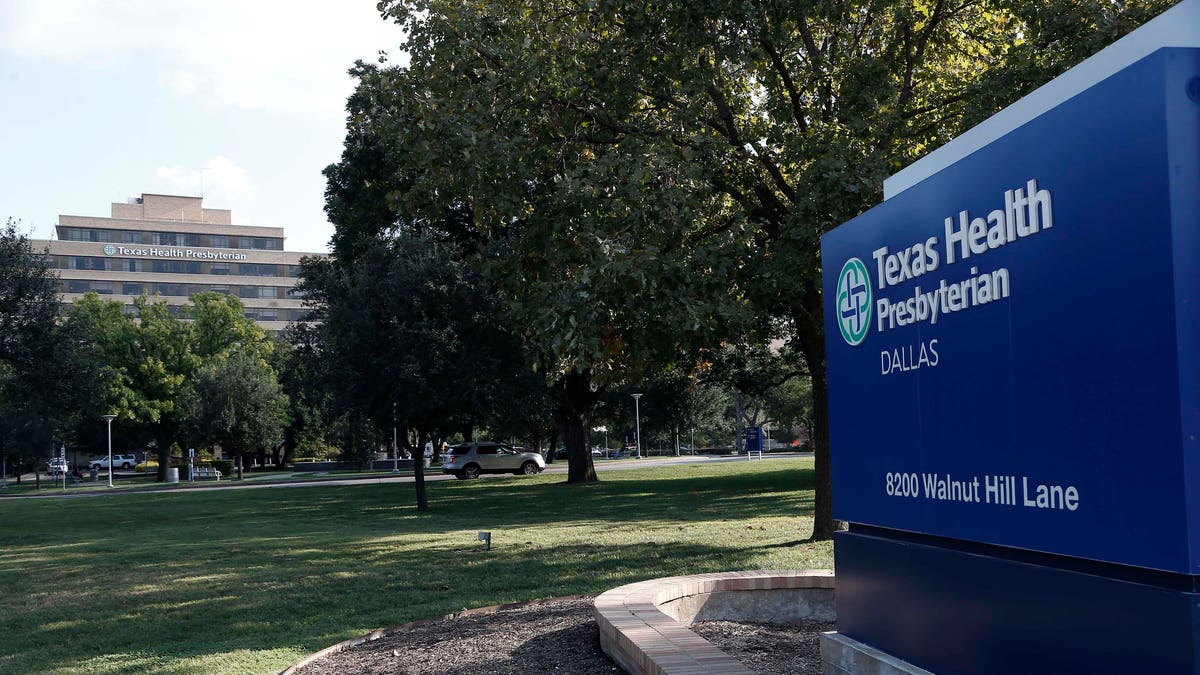
A general view of the Texas Health Presbyterian Hospital in Dallas, Texas September 30, 2014. REUTERS/Brandon Wade
The Liberian man diagnosed with Ebola last month just days after arriving in Texas has died following nearly two weeks in a Dallas hospital's isolation room, officials confirmed.
Thomas Eric Duncan, believed to be 42, who became the first person diagnosed with the killer virus on American soil during the current pandemic, died early Wednesday after a battle that sparked a national debate on screening of visitors from West Africa, which has been ravaged by the disease. His death came a day after officials began treating him with an experimental drug and days after he had taken a dramatic turn for the worse.
Thomas Eric Duncan, a Liberian national, had been placed on a ventilator and kidney dialysis after his health declined over the weekend.
“It is with profound sadness and heartfelt disappointment that we must inform you of the death of Thomas Eric Duncan this morning at 7:51 a.m.,” a spokesman from Texas Health Presbyterian Hospital said in a statement.
"Mr. Duncan succumbed to an insidious disease, Ebola. He fought courageously in this battle. Our professionals, the doctors and nurses in the unit, as well as the entire Texas Health Presbyterian Hospital Dallas community, are also grieving his passing. We have offered the family our support and condolences at this difficult time,” the statement said.
In a statement, Duncan’s partner, Louise Troh, who is in quarantine, expressed her thanks to the Dallas community, her church and the Liberian community for their support.
“His suffering is over. My family is in deep sadness and grief, but we leave him in the hands of God. Our deepest sympathies go out to his father and family in Liberia and here in America. Eric was a wonderful man who showed compassion toward all,” the statement said.
Duncan arrived in the U.S. on a commercial flight from Liberia in late September. He initially sought treatment at a hospital after feeling ill, but was sent home with antibiotics only to return two days later by ambulance. Duncan had been placed in isolation since Sept. 28.
Duncan reportedly had helped carry a 19-year-old pregnant woman to a taxi to go to the hospital just five days before he boarded a U.S.-bound flight. The woman later died.
Texas health officials have been monitoring 10 people who had close contact with Duncan, and 38 others who came into contact with that group. So far, none have shown any symptoms of Ebola, health officials said.
“This past week has been an enormous test of our health system, but for one family it has been far more personal. Today they lost a dear member of their family,” Dr. David Lakey, commissioner of the Texas Department of State Health Services said in a statement.
“They have our sincere condolences, and we are keeping them in our thoughts. The doctors, nurses and staff at Presbyterian provided excellent and compassionate care, but Ebola is a disease that attacks the body in many ways. We’ll continue every effort to contain the spread of the virus and protect people from this threat.”
Duncan was the first person diagnosed with the deadly virus on U.S. soil, and had been given the experimental medication brincidofovir. A hospital in Nebraska said it is using the same drug to treat an American journalist, Ashoka Mukpo, who was airlifted from Liberia and arrived Monday.
In a statement Thursday afternoon, Texas Health Presbyterian said that the drug ZMapp was not administered to Duncan because it was not available. According to the CDC and drug manufacturer, it had not been available since August 12.
Additionally, the hospital noted that Duncan did not receive the same type of serum transfusion as Mukpo— who received a blood transfusion from Ebola survivor Dr. Kent Brantly— because his blood type was not compatible with the serum donors.
Authorities in the United States and the public are on alert following Duncan's diagnosis more than a week ago, which raised concerns that the worst epidemic of Ebola on record could spread from three hardest-hit impoverished countries - Guinea, Sierra Leone and Liberia.
On Monday, President Obama announced that the U.S. government is preparing additional measures to screen passengers in the U.S. and overseas as part of the expanding effort to contain the virus.
"We're ... going to be working on protocols to do additional passenger screening both at the source and here in the United States," the president said.
Ebola has killed more than 3,400 people since an outbreak in West Africa began in March, out of nearly 7,500 confirmed, probable and suspected cases.
Dallas residents have mostly taken in news of Ebola within the city limits calmly, but many have kept a close eye on whether it might spread. Cars of Dallas County Sheriff's deputies who were at the scene of the apartment where Duncan stayed have been scrubbed as a precaution, the sheriff's office said.
The hospital and health officials have said mistakes were made in handling Duncan.
Duncan’s family was legally quarantined on October 2, after refusing to comply with Dallas health official requests that they stay home. They are to remain in isolation for 20 days until the potential incubation period for Ebola is over. The family’s home was disinfected on October 4, at which time they were moved a private residence in a gated community that was offered by a volunteer.
The Associated Press and Reuters contributed to this report.
